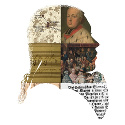The Music Library of Maximilian Franz, Elector of Cologne: an identification of its surviving sacred music sources and a reconstruction of their use, 1784–1794

The Music Library of Maximilian Franz, Elector of Cologne: an identification of its surviving sacred music sources and a reconstruction of their use, 1784–1794
FWF Projekt P 28895 (2016–2019)
head: Univ.-Prof. Dr. Birgit Lodes
researchers: Mag. Dr. John Wilson, Dr. Elisabeth Reisinger, BA
in cooperation with: Beethoven-Haus Bonn
Deutschsprachige Projektbeschreibung
Maximilian Franz of Austria (1756–1801), the youngest son of Maria Theresia and the last acting elector of Cologne, was known in his own day as a discerning musical patron with an extensive collection of scores, which he made available for court performances as well as for use and study by court musicians. Remembered by music history primarily as the first employer and supporter of Ludwig van Beethoven, the Habsburg elector’s reign marks the period at the Bonn electoral court when musical life in was arguably at its most vibrant, which directly corresponds with the composer’s formative years as assistant organist in the court chapel. Shortly before French forces occupied Bonn in 1794, the elector’s music library, containing over 3500 works, was moved to safety. At some point after his death, the surviving remnant of this collection was transferred through dynastic connections to Modena, where it still is preserved today in the Biblioteca Estense Universitaria, but whose provenance had until very recently never been systematically tested. Building organically on the results of “The Operatic Library of Elector Maximilian Franz” (www.univie.ac.at/operaticlibrary/), the current project hopes to identify the sacred music sources in Modena that originally were used in Bonn, as well as to analyze these and other documents pertaining to sacred music at the Bonn court to arrive at a renewed and deepened understanding of music’s role in courtly religious practices.
The project’s first phase encompasses a systematic identification of the musical sources, their paper types and copyists, which will be made accessible in an online database. A second level of inquiry will then address broader questions of this music’s adaptation and context within religious services in Bonn, especially with regard to the liturgical reforms of Joseph II and their implications for the performance of concerted masses, but also with an eye toward smaller liturgical genres and the influence of local traditions and possible transfer with other ecclesiastical courts in Mainz and Trier. Finally, what was the impact these sacred repertoires made on its court musicians? Beethoven’s lifelong fascination with sacred music has long been well known. To what degree was this influenced by his early experience in the court chapel, and what lessons might he and his peers (such as Anton Reicha, Bernhard and Andreas Romberg, and Ferdinand Ries) have learned from the music they played and the attitudes towards worship under which they were educated and socialized?
